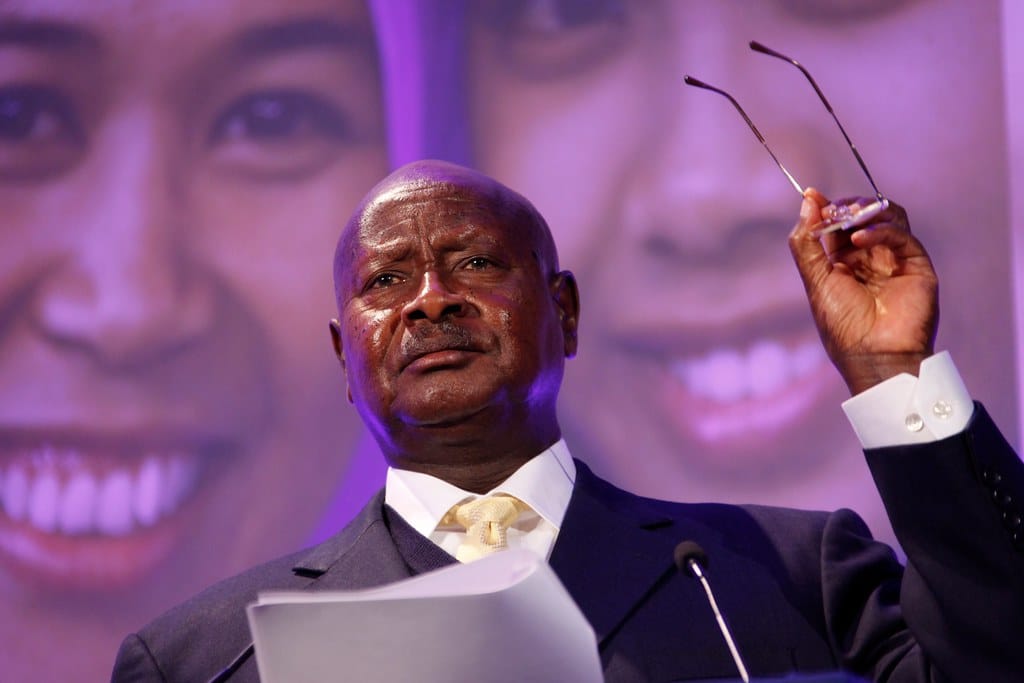Museveni declared winner of Ugandan vote amidst accusations of electoral fraud

By Hasna Choudhury, BSc Economics
On 16 January, the Electoral Commission of Uganda declared that the incumbent Yoweri Museveni had officially won the Presidential election. One of the longest-serving leaders in Africa, President Museveni of the National Resistance Movement has been in power for the last 35 years. This will be his sixth elected term.
The election was held on 14 January, and saw a voter turnout of 52%. Of the ten candidates challenging the 76-year-old for presidency, Museveni’s main opponent was 38-year-old Reggae musician Robert Kyagulanyi, better known by the stage name Bobi Wine. The commission reported that Museveni had won 5.85 million votes, 58.64% of all votes cast, while Bobi Wine trailed behind with 34.83%, securing 3.48 million votes.
Long-time supporters of President Museveni praise him for bringing prosperity to Uganda, coming into power at the end of a five-year civil war in 1986. His health policies have also been attributed to tackling the spread of HIV, and – more recently – the coronavirus pandemic. Last May, his strict lockdown measures called for the prohibition of vehicle use, the closure of schools and businesses, and the mandatory use of face masks in public. As a result, Uganda, with a population of more than 42 million, has remained relatively unscathed by the virus, recording 300 deaths and fewer than 40,000 cases, according to John Hopkins University.
Bobi Wine was held under heavy security at home at the time of the announcement of the election results. While the government said security personnel had been assigned for his safety, Wine’s party claimed he was in fact under house arrest. News of the 38-year-old’s arrest last November sparked political unrest, marking one of the bloodiest electoral campaigns in Ugandan history. Wine’s detention, on account of breaching lockdown measures, incited violent protests across the capital, leaving some 54 dead and hundreds more arrested. Wine reports having survived several assassination attempts, and has since taken to wearing a bullet-proof vest and helmet at public rallies.
‘[Bobi Wine] galvanised support among the youth, who have longed admired his efforts to promote social justice through music.’
In a country where the median age is just 16, the popstar-turned-politician galvanised support among the youth, who have long admired his efforts to promote social justice through music. He ran as a presidential candidate little over three years after entering politics.
Critics of Mr Museveni have chastised his authoritarian-like regime, fuelling allegations of corruption. In 2017 he advocated the removal of the presidential age limit of 75. He currently has no successor appointed within his party. The incumbent President has faced several contenders over the years. His most prominent rival, Kizza Besigye, has been arrested on multiple occasions, and decided not to run in the 2021 elections.
Bobi Wine has contested the legitimacy of recent results, claiming it was ‘the most fraudulent election in the history of Uganda.’ A day before the election, the government had ordered an internet shutdown, which raised questions as to how results would be transmitted across the country. The electoral commission claimed to have designed their own system, but chose not to elaborate on how this worked. Benjamin Katana, head of Wine’s National Unity Platform, said the commission had assured candidates that they would receive copies of district results before they were sent to the national tally centre. However, Katana told Al Jazeera that this did not happen.
While polls were tightly controlled, with soldiers and police officers patrolling the capital, the voting process was devoid of international supervision. Both the European Union and United States claim their offers to deploy diplomatic observers were duly declined. Now, as internet connections have been restored, Wine and his party are threatening to release video evidence of voting fraud. In a political parallel earlier this month, Trump supporters violently raided the US Capitol in rejection of Joe Biden’s appointment as President of the United States. Though Trump’s electoral fraud accusations were discredited, tensions are mounting in Uganda as Bobi Wine remains under house arrest. Following a 100-hour virtual blackout, Ugandans may not be so trusting of their electoral system – which begs the question: will democracy prevail once more?
Photo caption: President Yuweri Museveni speaking at the 2012 London Summit on Family Planning (Credit: DFID – UK Department for International Development via Creative Commons).



